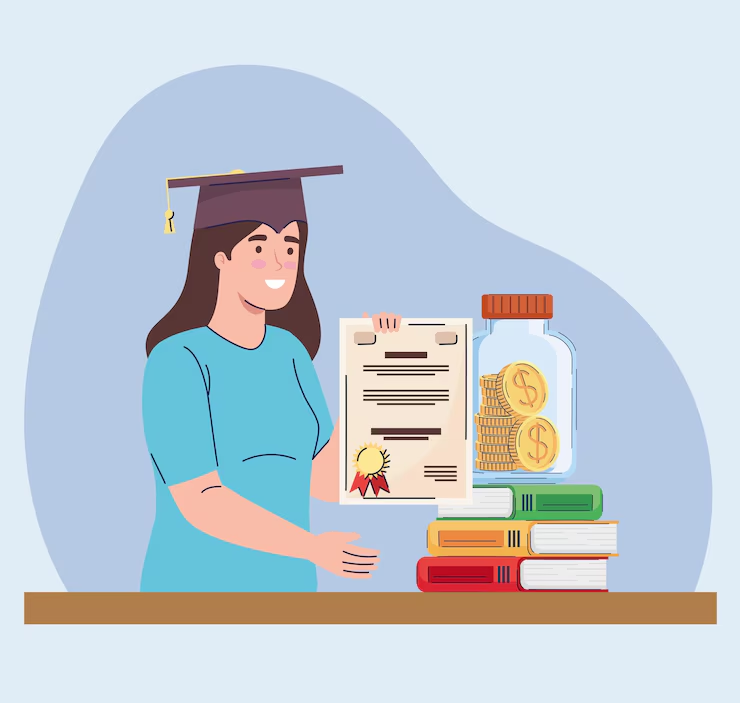Student Loan Consolidation: A Complete Guide for Borrowers
If you’re struggling with multiple student loans, student loan consolidation might be the solution you need. Managing several loans with different interest rates and due dates can be overwhelming. Student loan consolidation simplifies repayment by combining your loans into one, often with a lower monthly payment.
In this guide, we’ll explain everything about student loan consolidation, including how it works, its pros and cons, and how to apply. We’ll also answer common questions to help you decide if consolidation is right for you.
What Is Student Loan Consolidation?
Student loan consolidation is the process of combining multiple student loans into a single loan. This can be done through:
-
Federal Direct Consolidation Loan (for federal student loans)
-
Private Student Loan Refinancing (for federal or private loans)
The main goal of student loan consolidation is to make repayment easier by having just one monthly payment instead of several.
How Does Student Loan Consolidation Work?
1. Federal Student Loan Consolidation
If you have federal student loans (like Direct Subsidized, Unsubsidized, or FFELP loans), you can consolidate them through the U.S. Department of Education’s Direct Consolidation Loan program.
Key Features:
✔ Combines multiple federal loans into one
✔ Fixed interest rate (weighted average of your current loans)
✔ May extend repayment term (up to 30 years)
✔ Keeps federal benefits (income-driven repayment, loan forgiveness)
How to Apply:
You can apply for a federal student loan consolidation for free at StudentAid.gov.
2. Private Student Loan Refinancing
If you have private loans or want a lower interest rate, you can refinance through a private lender (like banks or credit unions).
Key Features:
✔ Combines federal and/or private loans
✔ May lower interest rate (if you have good credit)
✔ Could reduce monthly payments
✔ Loses federal benefits (no loan forgiveness or income-driven plans)
How to Apply:
Check lenders like SoFi, Earnest, or LendKey for student loan consolidation options.
Pros and Cons of Student Loan Consolidation
✅ Pros
✔ Simplifies payments – One loan, one due date
✔ May lower monthly payments (by extending repayment term)
✔ Fixed interest rate (no surprises with variable rates)
✔ Access to forgiveness programs (federal consolidation only)
❌ Cons
✖ May pay more interest (if repayment term is longer)
✖ Lose some benefits (if refinancing federal loans privately)
✖ Credit check required (for private refinancing)
Who Should Consider Student Loan Consolidation?
Student loan consolidation is a good option if you:
🔹 Have multiple federal student loans
🔹 Struggle to keep track of due dates
🔹 Want a fixed interest rate
🔹 Need lower monthly payments
However, if you’re close to Public Service Loan Forgiveness (PSLF), consolidating federal loans may reset your progress.
How to Apply for Student Loan Consolidation
Federal Consolidation Steps:
-
Log in to StudentAid.gov
-
Complete the Direct Consolidation Loan Application
-
Choose a repayment plan
-
Submit the application (takes about 30 minutes)
Private Refinancing Steps:
-
Compare lenders (SoFi, Earnest, Splash Financial)
-
Check interest rates (soft credit check first)
-
Submit an application with your financial details
-
If approved, the lender pays off your old loans
FAQs About Student Loan Consolidation
1. Does student loan consolidation hurt my credit score?
A small, temporary dip may happen when lenders check your credit, but consolidation can help long-term by improving payment history.
2. Can I consolidate private and federal loans together?
Only through private refinancing (but you lose federal benefits). Federal consolidation only works for federal loans.
3. Will consolidation lower my interest rate?
Federal consolidation averages your rates, while private refinancing may offer a lower rate if you have good credit.
4. Can I undo student loan consolidation?
No, once loans are consolidated, they cannot be reversed.
5. Is student loan consolidation the same as forgiveness?
No, consolidation just combines loans. Forgiveness cancels debt (like PSLF or IDR forgiveness).
Final Thoughts
Student loan consolidation can make repayment easier, but it’s not the best choice for everyone. If you have federal loans and want to keep benefits, federal consolidation is a smart move. If you have strong credit and want lower rates, private refinancing may help.
Before deciding, compare options and use the Federal Loan Simulator to see how consolidation affects your payments.
Need help? Contact your loan servicer or a financial advisor to explore the best student loan consolidation strategy for your situation.

